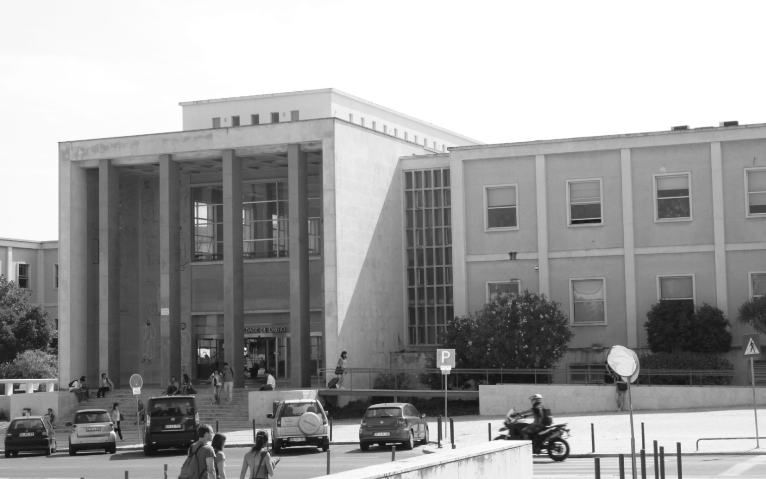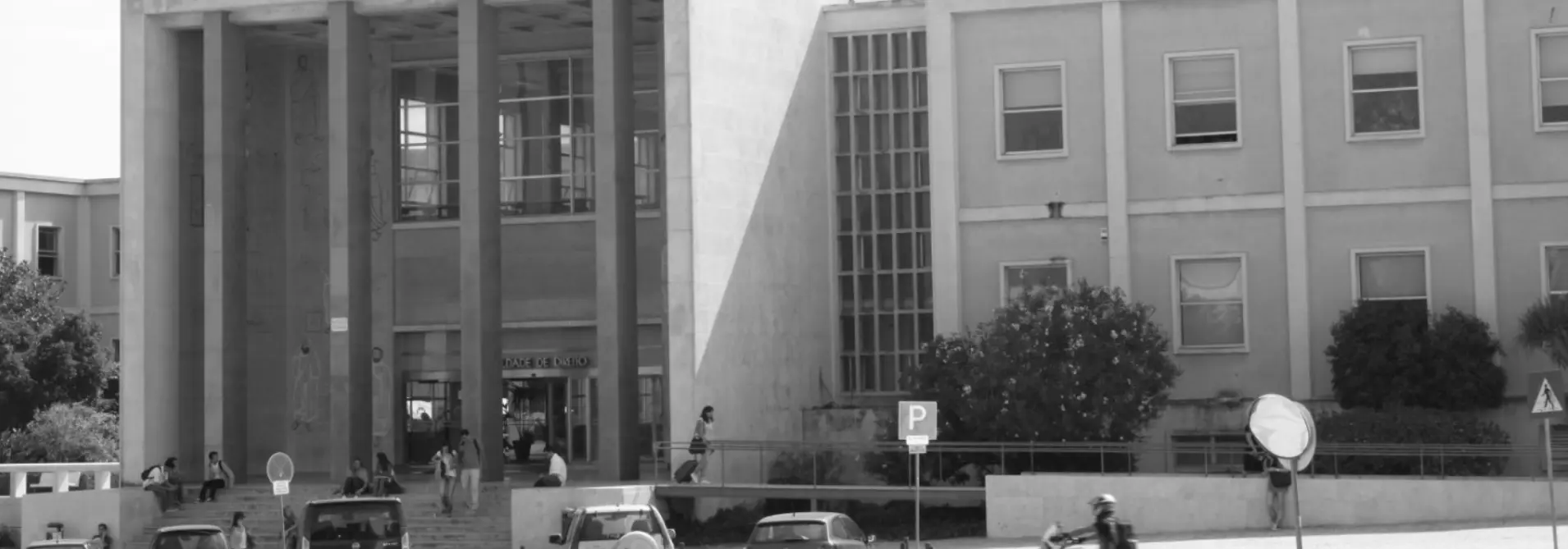RESEARCH
LPL EDITIONS
RESEARCH ACADEMY
HAPPENING
RESEARCH
Constitutional Law and Political Science
Rules for Legislative Drafting in Portuguese-speaking Countries and Regions

João Tiago Silveira
Alexandre Sousa Pinheiro; Miguel Romão; Cláudia Ribeiro, Ana Paula Bernardo
UIDB/04310/2020
Ongoing

Summary
Almost unknown in university curricula, and since the beginning of the century included in postgraduate courses, Legistics has emerged as an area of knowledge that aims to define rules and methods aimed at producing quality normative instruments. The aim, therefore, is to study the best ways of conceiving normative solutions and writing them. In other words, “theorizing recipes to produce “good laws”.[1]
It is not just the legal merit of the normative act that is at issue – namely its compatibility with the Constitution, with International Law, with European Union Law, with laws of reinforced value or compliance with legally prescribed procedures, as in the case of regulations -, but, essentially, knowing how standards can be constructed and written that clearly, simply and safely translate the decision-maker's intention. The awareness that the law must be evaluated in terms of “quality” and not just as “source”, was developed in the European Union, especially with the approval of the Mandelkern Group report (2001) which defined the need to pursue a policy legislation based on necessity,
The awareness that the law must be evaluated in terms of “quality” and not just as “source”, was developed in the European Union, especially with the approval of the Mandelkern Group report (2001) which defined the need to pursue a policy legislation based on necessity, proportionality, subsidiarity, transparency, responsibility, accessibility and simplicity of the law. Today, institutions such as the European Union, the OECD and the World Bank and a relevant number of States dedicate part of their efforts to developing and supporting better regulation and smart legislation programs.
Tradicionalmente, o estudo da Legística pode estribar-se em quatro divisões:
(i) o estudo do sistema de atos normativos;
(ii) a Legística material;
(iii) a Legística formal;
(iv) a avaliação de impacto das decisões normativas.
Qualquer destas divisões é extensa e merecedora de um projeto de investigação autónomo. Enquanto que o sistema de atos normativos é uma componente técnico-jurídica e jurídico-política, a Legística material percorre, tipicamente, os vetores metodológicos da construção do instrumento normativo. Já a avaliação de impacto, em termos muito sumários, visa essencialmente determinar se a solução normativa é a mais adequada para fazer face ao problema que a lei se destina a resolver (avaliação ex ante) ou se os resultados da aplicação da lei correspondem aos inicialmente pretendidos pelo legislador (avaliação ex post).
O presente projeto de investigação situa-se no terceiro dos planos acima identificados: pretende estudar e contribuir para a definição de critérios, standards e regras comuns de Legística para os ordenamentos jurídicos de Angola, Brasil, Cabo Verde, Guiné-Bissau, Macau, Moçambique, Portugal, São Tomé e Princípe e Timor-Leste. Portanto, tem por objeto essencial a Legística formal, que visa essencialmente a definição e execução de regras e boas práticas de redação de atos normativos. Esta delimitação de objeto não significa, como veremos, que não exista a necessidade de convocar alguns temas das restantes divisões da Legística no decurso deste projeto, o que se poderá revelar necessário.
Objectives
Four main reasons justify carrying out this research project:
Firstly, the adoption of common criteria, standards and rules in the drafting of normative acts means greater ease in understanding laws and regulations, in this case in a much broader space than that of a single legal system.
It should be noted that the issue is not the adoption of common laws, regulations or policies, but rather finding common ways of determining how to write normative acts. In other words, more similar ways of writing and systematizing, which allow citizens and companies from a set of legal systems to more easily act in all the States and regions in question. Basically, common criteria, standards and rules of legislation in States and regions where Portuguese is the official language mean the existence of better conditions for citizens of these various States and regions to act in each of these systems and increased ease for companies to invest in the joint space of the various orders in question.
Based on this understanding, all users of a legal system can quickly and effectively understand the content of legislation and regulations. Doctrine may present different solutions to a life situation. However, doubts about, for example, the legislation in force or the meaning of a normative formula can be dispelled by facilitating the understanding of citizens' rights and obligations and simplifying access to the Law applicable to investors, national and foreign.
Secondly, sharing a common language provides the ideal cultural environment for the development of drafting rules common to Portuguese-speaking states and regions where Portuguese is used in legislative and regulatory texts. It is, therefore, about exploring the potential of a space with more than 250 million Portuguese-speaking citizens.
Depois, em terceiro lugar, o espaço de desenvolvimento comum, cooperação e integração jurídica entre os países de língua portuguesa é ainda relativamente reduzido, existindo oportunidades por desbravar que permitam explorar esse potencial. Este projeto visa contribuir para acrescentar desenvolvimento comum, cooperação e integração numa área essencial à sociedade e ao Estado de Direito: a da transparência e transparência do Direito aplicável.
Finalmente, em quarto lugar, é possível identificar semelhanças evidentes na cultura jurídica de vários dos Estados e regiões de língua portuguesa, o que aconselha o estudo e desenvolvimento desse potencial.
This project therefore aims to achieve an easy-to-identify objective: the determination of common rules on the drafting of normative acts in the Portuguese-speaking space.
It is about taking advantage of the knowledge and common heritage of all Portuguese-speaking legal systems, in an academic dialogue, convening academics and specialists from each of them, without exclusions. To this end, it is proposed to create a mixed team, formed by researchers from the Public Law Research Center of the Faculty of Law of the University of Lisbon, specialists and researchers from the various States and regions where the law is written in Portuguese and of consultants from European universities.
Relevance
As mentioned, the definition of criteria, standards and common rules of legislation for Portuguese-speaking countries and regions, including Angola, Brazil, Cape Verde, Guinea-Bissau, Macau, Mozambique, Portugal, São Tomé and Princípe and Timor, in first line, on aspects related to formal legistics. In other words, about the rules directly related to the writing of diplomas.
The definition of these criteria, standards and common rules may therefore involve addressing relevant aspects in terms of formal legistics such as the following:
- Organisation and systematicity of the normative text;
- Thematic homogeneity of the normative text;
- Homogeneity of discourse and language used in the order;
- Accessibility to changes to normative texts;
- Republishing and consolidating regulations as mechanisms for simplifying applicable law;
- Special procedures for drafting rules in accordance with the principle of typicality.
Regardless of whether the research project described here essentially relates to formal legalistics themes, the approach to matters relating to material legalistics is not excluded, if justified, such as, for example, the definition of a standard methodological sequence in the drafting of acts regulations or the adoption of basic principles regarding public discussions, consultations and hearings.











